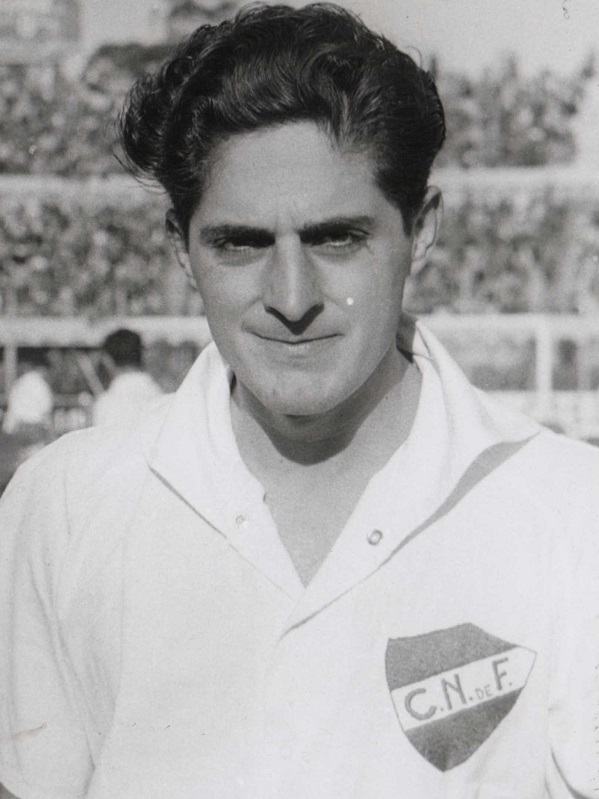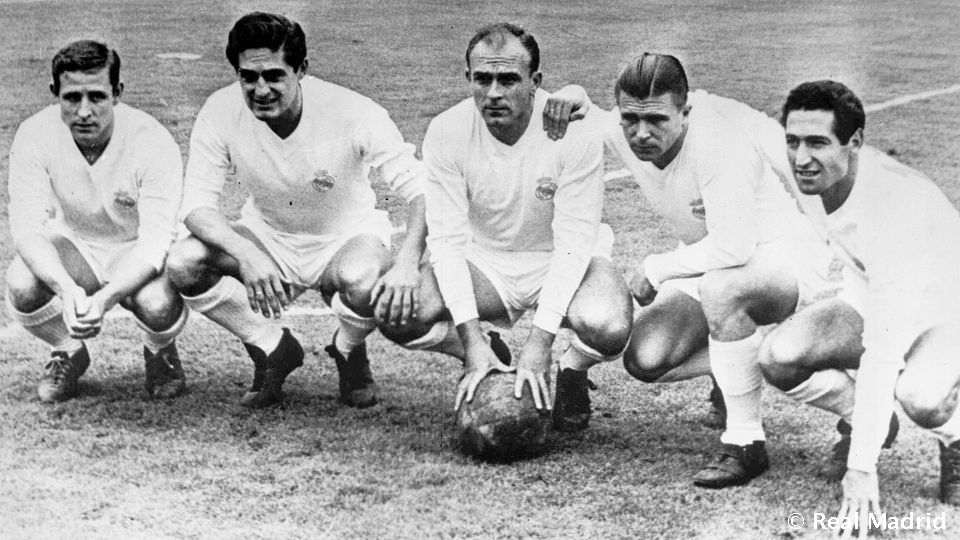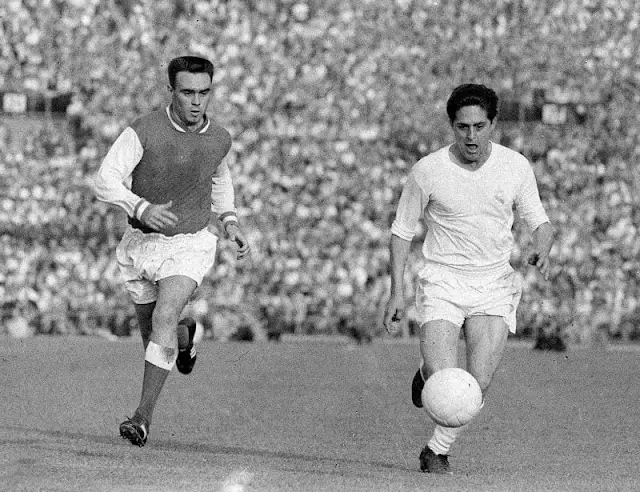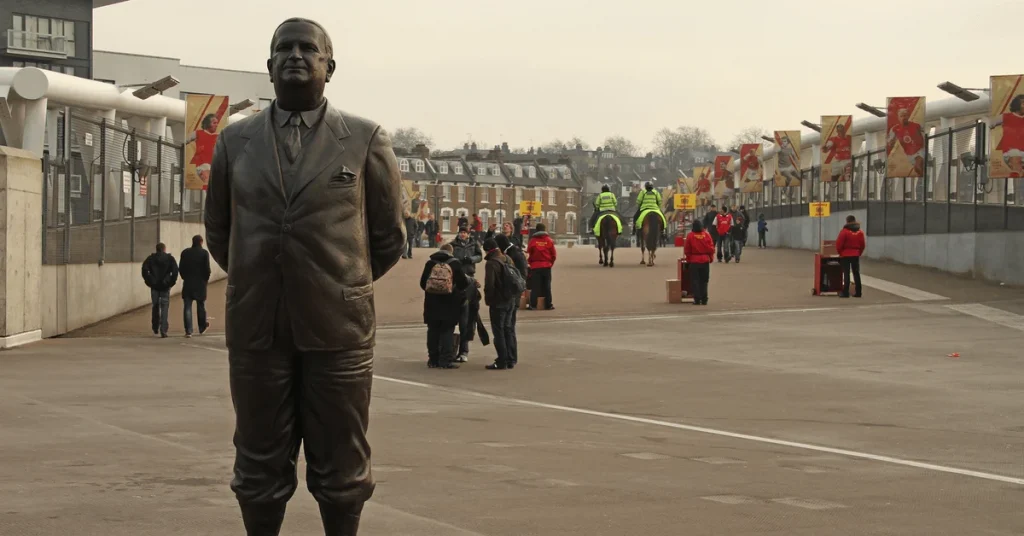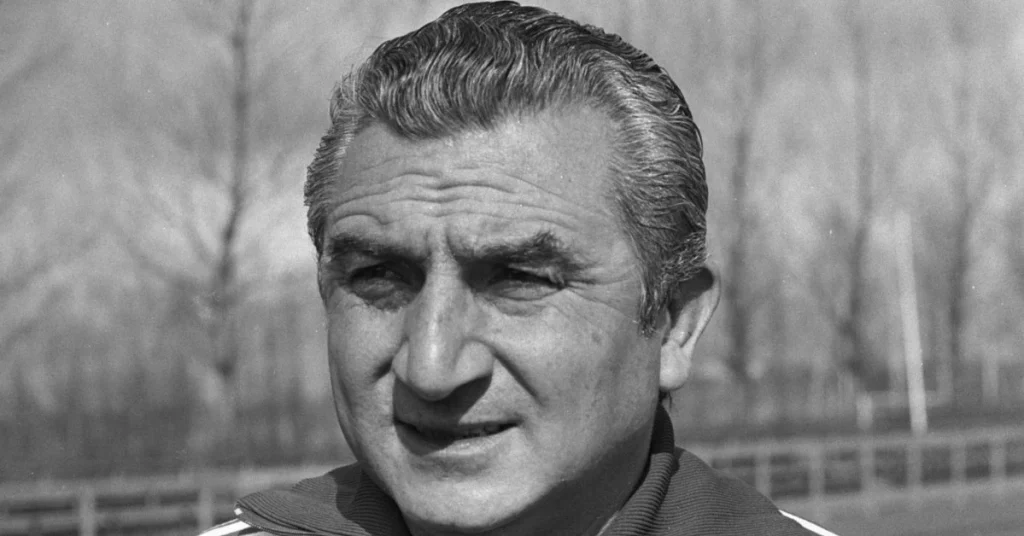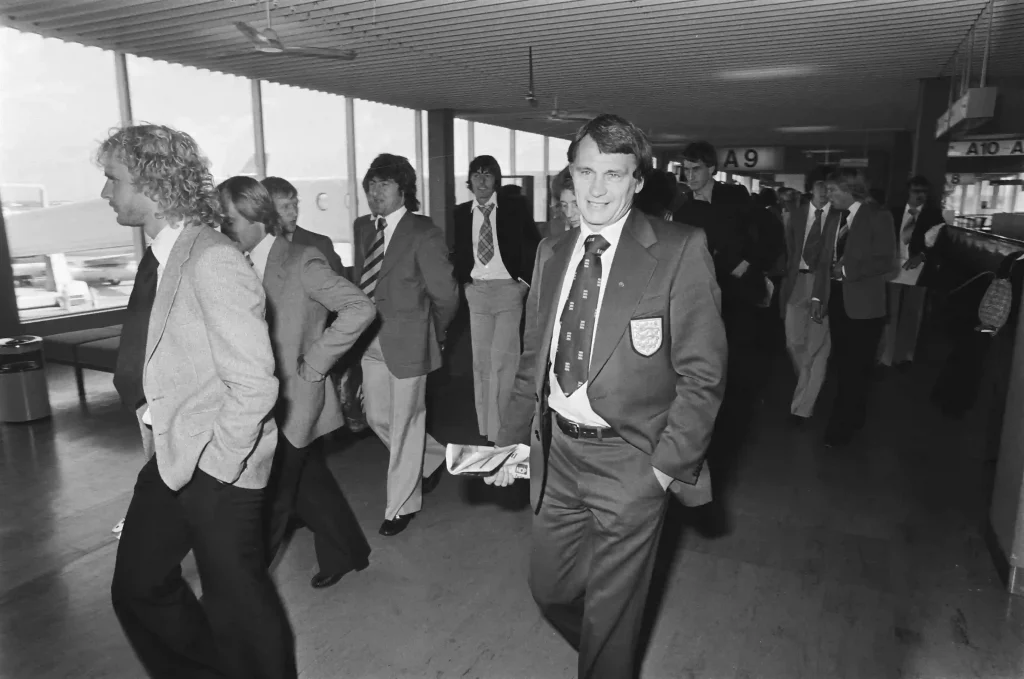Hector Rial was an inside forward (attacking midfielder nowadays), who was part of the great Real Madrid side that dominated the early years of the European Cup, winning the first five tournaments. He was also ahead of his time by playing club football in six different countries, still a rarity in the present day.
How it all began
José Héctor Rial Laguía was born in Pergamino, Argentina, in October 1928, the son of Spanish immigrants. He was brought up in Buenos Aires and began his football career with local side San Lorenzo de Almagro, who played in their top division, in 1947. He stayed for two years, scoring 20 goals in 40 games, then in July 1949 he joined Independiente Santa Fe in Colombia, who at the time were paying big money. The Colombian league broke away from FIFA that year (they rejoined five years later) and Independiente also controversially bought England international Neil Franklin from Stoke and Charlie Mitten from Manchester United.
Hector stayed there for two years, scoring 26 goals in 54 appearances and then moved countries again, joining Nacional, based in Montevideo, Uruguay. Football was booming in Uruguay at the time as they had won the World Cup in 1950. Nacional won the league in 1952 with Hector as one of its stars and again he stayed for two years, scoring 20 times in 51 games.
Real Madrid come calling
Even in those days, Real Madrid were a glamour club on the up, signing the best talent from across the world, and in 1954, Hector declared that if he couldn’t leave Nacional and join them then he would retire from the game! Thus in 1954 he was allowed to join them, just after they had won the Spanish league for the first time in over 20 years.
In 1954/55 Hector netted on his debut, a 2-1 defeat at home to Valencia, and scored in his first three games for his new club. He scored a hat trick in a 3-1 home win over Sevilla in January 1955, and notched ten goals in the final ten games of the season as Real Madrid retained La Liga. Altogether he scored a career best 18 goals in 30 games that season.
In March 1955 Hector was chosen to play for Spain, qualifying through his parents, and he did well in a 2-1 home defeat by France. He made his second appearance a couple of months later in a bad-tempered game against England that ended 1-1 in front of 125,000 at Real Madrid’s Bernabeu Stadium. Roy Bentley had given England a first half lead but Hector swept home the leveller in the 65th minute to the joy of the home crowd. That was his only goal for his country in five appearances.
European success
For the 1955/56 season, a new competition came into being, the European Cup, for clubs from different European leagues, based on the South American version. For the first season it was by invitation only, but most were winners of their national league, but not all, and Real Madrid fitted into the former category.
In the first leg of the First Round, Real Madrid won 2-0 away to Servette in Geneva with late goals from Miguel Munoz and Rial, the latter coming one minute from time. The second leg was a formality, ending 5-0 with Rial again one of the scorers. Over 105,000, easily the biggest of the competition so far, saw Real defeat Partizan Belgrade 4-0 in the first leg of the quarter finals in Madrid. A lot thought the tie was all over, but Partizan won the return leg 3-0 to only lose 4-3 on aggregate.
In the first leg of the semi-final, Rial gave Real a sixth minute lead on the way to a 4-2 victory over AC Milan, and although they lost the second leg 2-1, they did enough to reach the very first European Cup final. The final was played at the Parc des Princes in Paris (the competition was devised by the French) and 38,000 packed into the ground, mainly supporting French team Stade de Reims.
The home fans were ecstatic as Reims took a two goal lead by the tenth minute but Real were back in it when Alfredo Di Stefano scored four minutes later. On the half hour mark, it was 2-2 as Rial headed home a cross from the right. Reims restored their lead through Michel Hidalgo, later to become manager of France, but Marquitos levelled matters again in the 67th minute. With just eleven minutes remaining a Real attack down the left ended with Rial poking the ball home from close range to win it 4-3 and become the first player to score the winner in a European final.
In the league that season, maybe Real were distracted as they only finished third despite another 15 league goals from Hector. For the 1956/57 campaign it was only a country’s league champions who were invited, but Real qualified as the holders, who were also admitted. Hector was injured for a lot of the 1956/57 season, only playing five league games as Real regained their crown. He also missed the European Cup run until the semi-finals against Manchester United.
It was the first time the two giants of the game had ever met and Real gave the Busby Babes a sharp lesson with a 3-1 victory in the first leg in Madrid. Rial headed the opening goal in the 61st minute from a cross by Jose Maria Zarraga. In the return at Old Trafford Real took a 2-0 lead to take the tie away from United with Rial turning home the second goal in the 33rd minute from a Gento cross. United hit back to draw 2-2, but Real reached the final again.
The final was played at the Bernabeu and 124,000 Spaniards crammed into the ground to see their heroes defeat Fiorentina 2-0 as Rial played his part.
Historic hat trick
Hector was fully fit again for the 1957/58 season, only missing two league games and scoring 17 goals as Real won the league. He was also on form in the European Cup as he became the first Real Madrid player to scored a European hat trick in November 1957 when he obliged in a 6-0 second leg First Round victory over Royal Antwerp. His first two goals came in the second and fourth minutes and his third arrived four minutes before half time.
Seville were battered 10-2 in the next round and after defeating Vasas Budapest 4-2 on aggregate in the semi-finals, Real reached their third European final in succession. Their opponents were AC Milan in Brussels and the Italians took a 59th minute lead. Di Stefano equalised but Milan went back in front through Grillo. Was Real’s crown about to slip? No because with eleven minutes remaining Rial controlled a cross on the edge of the box from the right and lofted a shot over the ‘keeper to send the game into extra time. Gento won the trophy for Real in the 107th minute, but this was their toughest final so far.
Four in a row
In 1958/59 Real finished second in the league to rivals Barcelona but were again the team to beat in the Champions League. Hector scored in a 7-1 romp against Wiener Sport-Klub and was also on the mark against cross city rivals Atletico Madrid in the semi-finals, equalising in the first leg that Real won 2-1. Atletico won the second leg 1-0 to take it to a play-off but Real prevailed 2-1 to reach their fourth final. Reims were their opponents for a second time, this time in Stuttgart. Real won a tough game 2-0 despite missing a penalty.
Hector was hampered by injury once again in the 1959/60 season and was limited to just five league games as Real finished second to Barcelona on goal difference. He also only played one European Cup game, but scored in a 3-2 defeat in Nice in the quarter final. Real turned that around in the return leg and reached the final for a fifth time, winning a classic 7-3 against Eintracht Frankfurt at Hampden Park, Glasgow.
End of an era
Hector only played twice in 1960/61 as Real won the league for the fifth time in eight seasons, but their fabulous run in the European Cup came to a sad end as they lost 4-3 on aggregate to rivals Barcelona in the Second Round. For the last five months of the campaign Hector went on loan to Union Espanola, based in Santiago, Chile, scoring once in 15 appearances. At the end of the season, having scored 74 goals in 139 appearances for Real, Hector Rial left to join Espanyol, based in Barcelona. He scored on his debut v Elche, but only played six games as they finished a disappointing 13th in La Liga.
After just a year at Espanyol he moved on to Olympique Marseille, who had just been promoted to the top division. They suffered immediate relegation though and finished bottom of the pile. Hector made 16 appearances for them, but at the end of the season announced his retirement from playing at the age of 34.
He then turned his talents to being a manager, taking over at Real Mallorca in December 1965. Two spells at Pontevedra followed before going on to Real Zaragoza and UD Las Palmas. He was manager of the Spanish U23s in the 1971/72 season and was an official accompanying the Argentina squad to the 1974 World Cup in West Germany. He returned to club management with Deportivo La Coruna and Elche, ending his managerial career back at Pontevedra in 1990. He died aged just 62 in February 1991.
